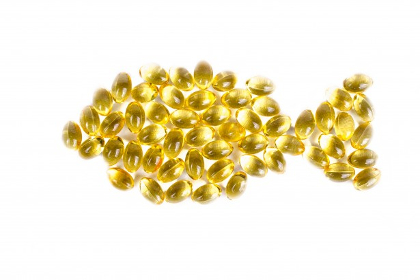
Differences between Omega-3 Fats from Plants and Marine Animals
Omega-3 fats are essential polyunsaturated fatty acids (PUFAs) your body needs for digestion, muscle activity, blood clotting, visual acuity, memory and much more. They're particularly important for proper cell division and function of cell receptors.
September 11, 2016 | Source: Mercola | by Dr. Joseph Mercola
Omega-3 fats are essential polyunsaturated fatty acids (PUFAs) your body needs for digestion, muscle activity, blood clotting, visual acuity, memory and much more. They're particularly important for proper cell division and function of cell receptors.
These fats, although originally synthesized by microorganisms in the oceans, are ideally obtained from the consumption of small fish that are free of toxins.
Most omega-3s are considered "essential fats" as your body cannot make them. You have to get them from your diet. However, there's plenty of confusion when it comes to which omega-3 fats are required for optimal health.
Can you substitute marine animal-based omega-3 for plant-based omega-3? And is there really a difference between the omega-3 you get from fish, versus that from krill? In this interview, Nils Hoem, Ph.D., a Norwegian scientist specializing in omega-3 phospholipids, answers these and other crucial questions.
The 2 Sources of Omega-3
You can obtain omega-3 fats from both plants and marine animals like fish and krill. However, it's really important to realize that these sources provide DIFFERENT TYPES of omega-3, and they are NOT interchangeable.
If for whatever reason you choose to avoid all animal-based foods, you simply cannot substitute with plant-based omega-3 and think you've covered all your omega-3 needs.
Both plant- and animal-based omega-3 have their first double-bond in the third position — hence the name "omega-3." However, the length of the carbon chain of each omega-3 fat makes a significant difference when it comes to bioavailability and biological effect.
• Marine animal-based omega-3 (fatty fish, fish oil and krill oil) primarily contain docosahexaenoic acid (DHA), a long-chained PUFA consisting of 22 carbons and eicosapentaenoic acid (EPA), which has 20 carbons.
• Plant-based omega-3 (found in flaxseed, flaxseed oil, chia seeds, walnuts and leafy greens, for example) contain alpha-linolenic acid (ALA), a shorter-chained PUFA consisting of 18 carbons. They are completely devoid of DHA and EPA.
https://www.youtube.com/watch?v=edzD_41_XZw
